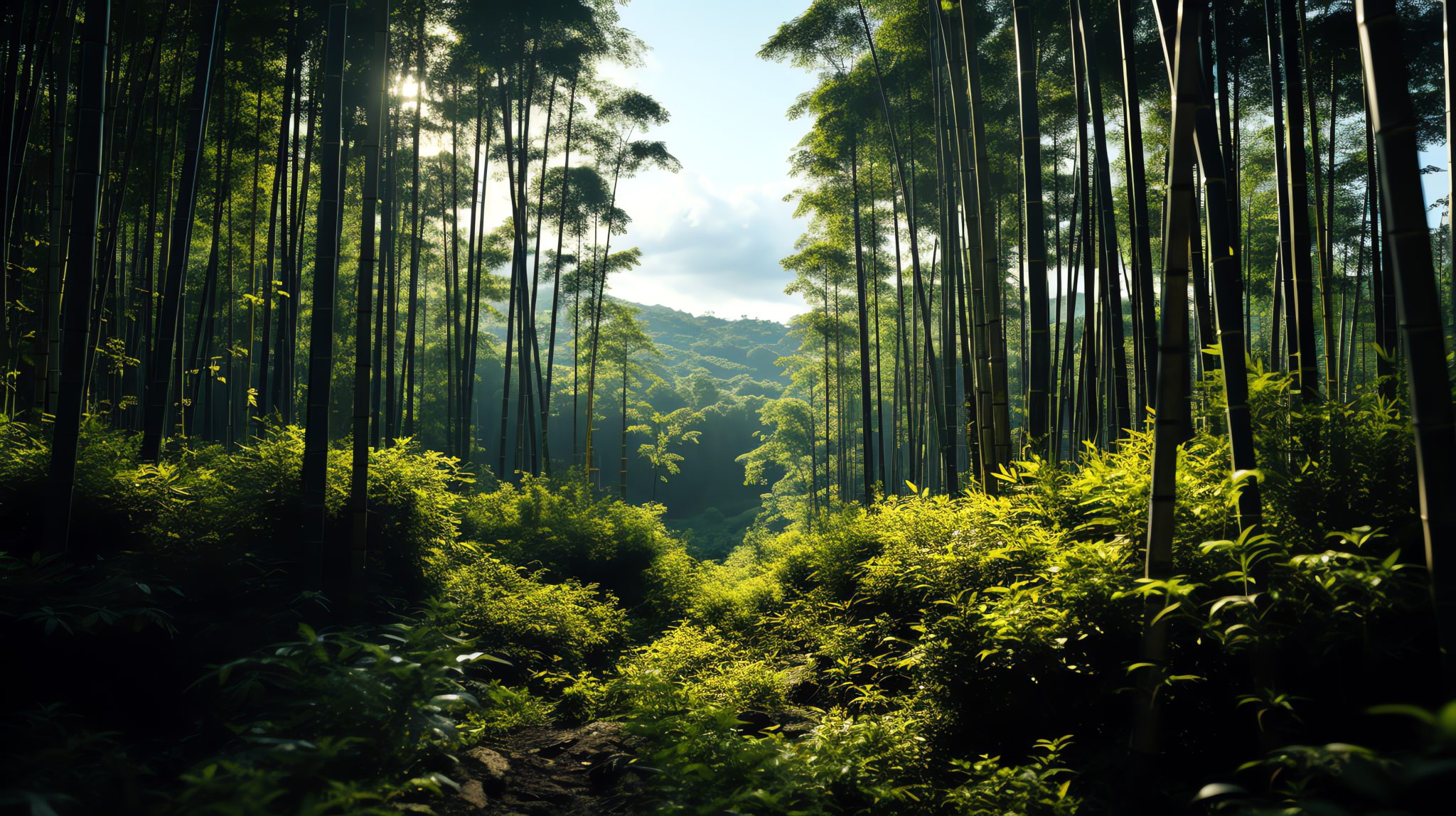In 2024, let’s all do good.
As we step into 2024, it’s time to reflect on our environmental choices and make conscious decisions towards a sustainable future. One such decision is the shift towards using materials that are not just less harmful to the environment, but actively beneficial. At the forefront of this green revolution is bamboo – a material that’s proving to be a game-changer in sustainable practices.
Why Bamboo?
Bamboo isn’t just another alternative material; it’s a beacon of hope in our fight against environmental degradation.
Here’s why:
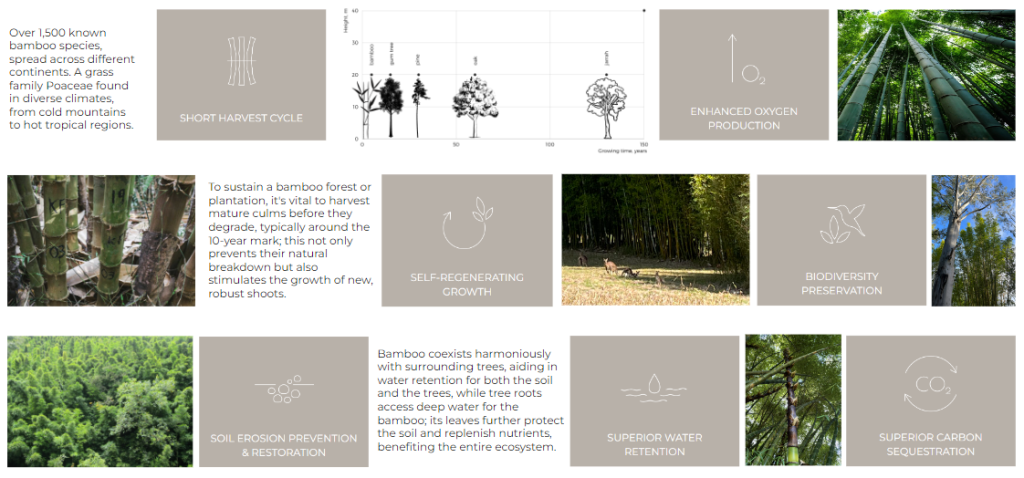
Soil Erosion Prevention & Restoration: Bamboo plays a crucial role in decreasing soil erosion and preventing desertification. Its extensive root network binds the earth, restoring soil health. The dense canopy further contributes to soil stability.
Zero Waste Life Cycle: Bamboo sets a benchmark for sustainability with its zero-waste lifecycle. Every part of the plant is utilized – from shoots to leaves, ensuring minimal environmental impact and promoting a circular economy.
Short Harvest Cycle: Bamboo’s rapid growth is a key feature of its sustainability. Ready to be harvested in just 3-5 years, bamboo’s quick turnover is in stark contrast to traditional hardwoods, making it a highly renewable resource.
Self Regenerating Growth :One of the most remarkable traits of bamboo is its self-regenerating capacity. After being cut, bamboo can regrow from its existing root system without the need for replanting. This unique characteristic not only saves time and resources in cultivation but also ensures a continuous supply of this sustainable material, further underlining its environmental advantages.
Multifaceted Bioenergy Resource: Bamboo’s versatility extends to energy production. It can be transformed into biofuel, charcoal, and biogas, presenting a renewable and eco-friendly energy alternative.
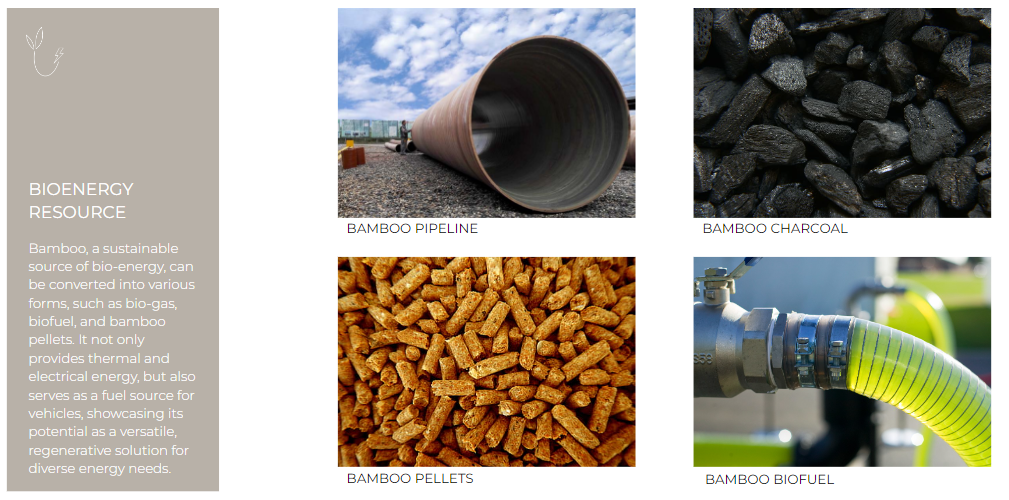
Biodiversity Preservation: Growing bamboo aids in biodiversity conservation. It provides a habitat for various species and maintains an ecological balance, thereby supporting a wide range of flora and fauna.
Greenhouse Gas Emissions Reduction: In the fight against climate change, bamboo stands out for its ability to significantly reduce greenhouse gas emissions. Its substitution for more carbon-intensive materials makes it a vital component in eco-friendly practices.
Natural Water Purification : Bamboo contributes to water purification. Its roots filter impurities and improve water quality, showcasing another aspect of its environmental benefits.
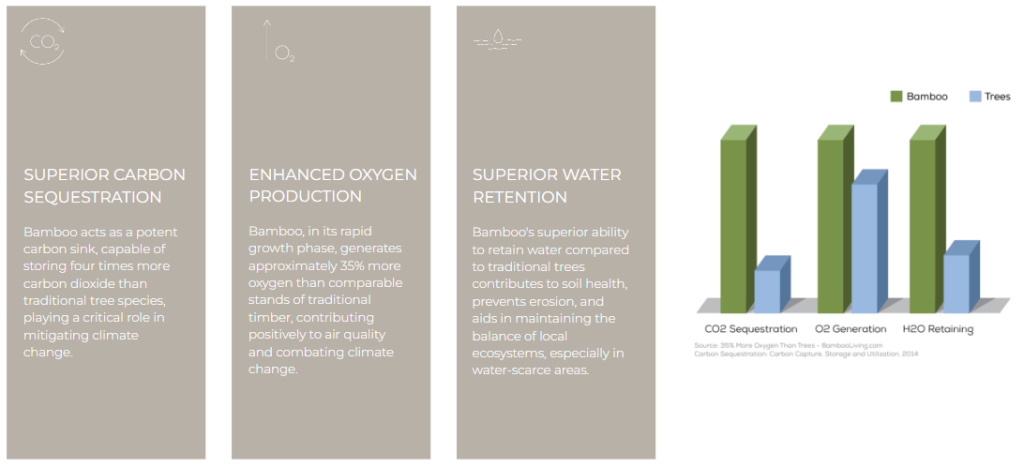
Superior Water Retention : Bamboo’s ability to retain water enhances soil quality and reduces the need for irrigation, thereby conserving water resources and supporting sustainable agricultural practices.
Enhanced Oxygen Production : Bamboo not only reduces carbon dioxide but also produces more oxygen compared to an equivalent mass of trees. This increased oxygen production contributes to cleaner, healthier air.
Superior Carbon Sequestration : Bamboo excels in absorbing carbon dioxide, storing more carbon than certain tree species. This ability makes it a powerful tool in mitigating the effects of climate change.
Climate Change Mitigation : As a sustainable and renewable resource, bamboo plays a critical role in climate change mitigation. It provides an eco-friendly alternative to traditional materials, helping reduce our overall carbon footprint.
Impact on Industries
The versatility of bamboo makes it a perfect fit for numerous industries. Architects, designers, and homeowners are increasingly turning to bamboo for construction projects. It’s not just about replacing harmful materials; it’s about choosing a resource that adds value to the environment.
Bamboo’s strength and flexibility make it an excellent material for building structures, particularly in earthquake-prone regions.
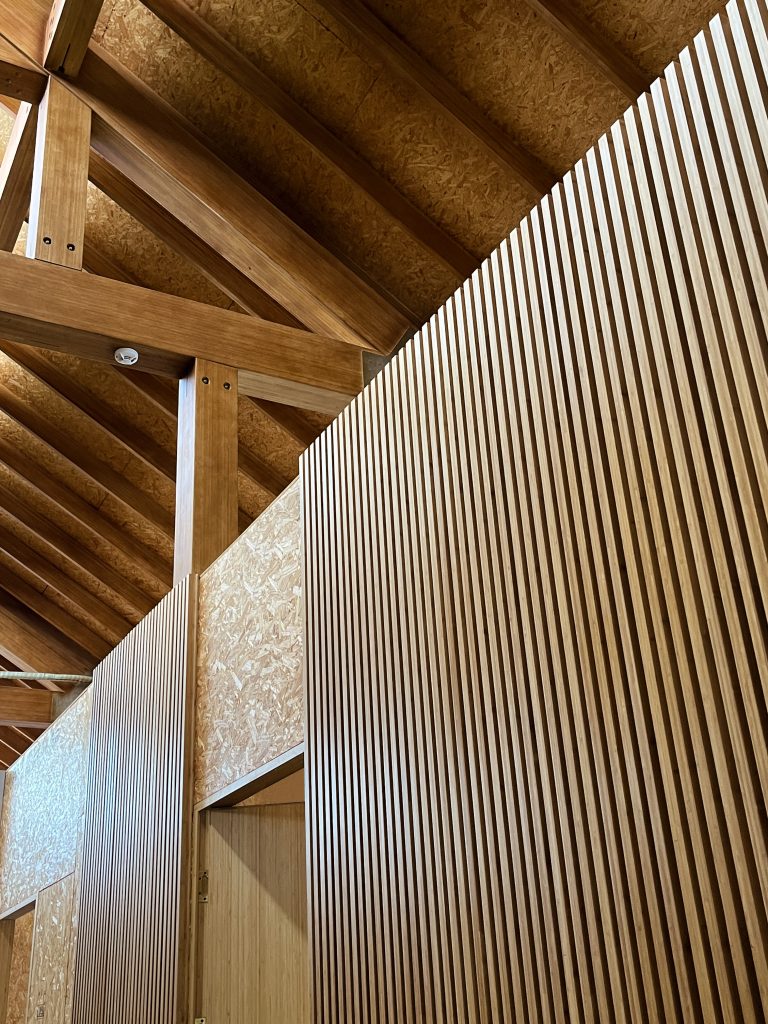
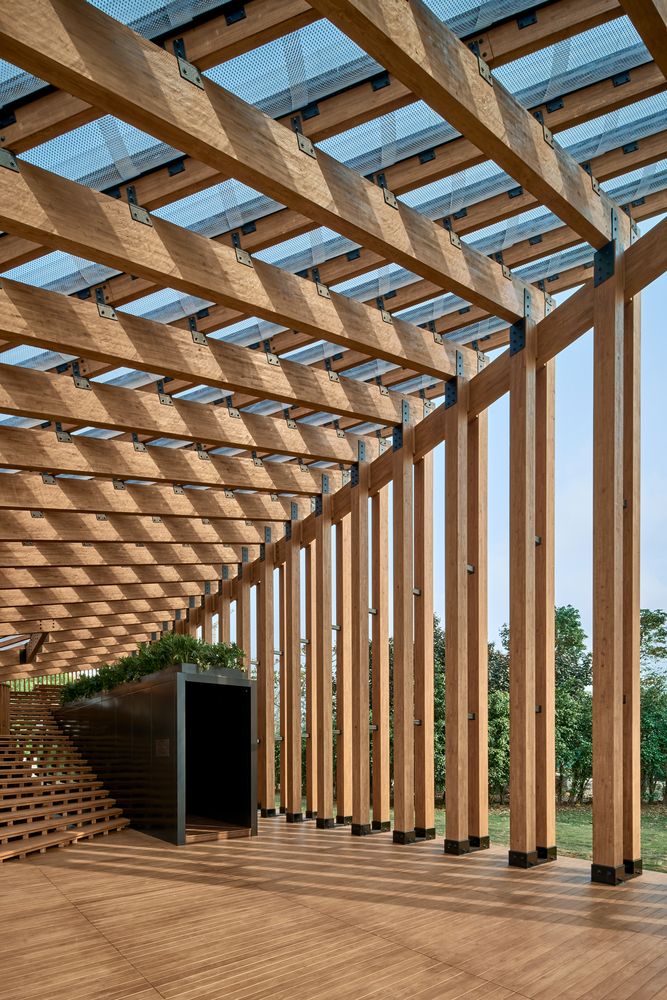
Let’s Make 2024 All About Bamboo!
As we usher in 2024, let’s collectively embrace it as the Year of Bamboo. This goes beyond just following a trend; it’s about joining a meaningful movement towards a lifestyle that’s both aware and sustainable. Opting for bamboo means we’re actively contributing to the well-being of our planet, not just avoiding potential harm.
Whether you’re shaping buildings as an architect, crafting designs, making your home cozier, or simply someone who holds our planet close to their heart, why not make bamboo your choice in your upcoming endeavours? By incorporating this versatile and eco-friendly material, we can collectively pave the way for a future that doesn’t just survive, but thrives in harmony with nature. Let’s make this year a turning point for us and our Earth. The time for bamboo has come!
